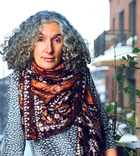
Cécile Rousseau, MD, is a professor of psychiatry at McGill University working with refugee and immigrant children. She has been working with immigrant and refugee communities, developing specific school-based interventions and policy-oriented research. Presently her research is focusing on the evaluation of collaborative mental health care models for youth in multiethnic neighborhoods.

Suzanne Stewart, PhD, C.Psych is a member of the Yellowknife Dene First Nation. Dr. Stewart is a psychologist and professor of Indigenous healing in Counseling Psychology at OISE/University of Toronto, where she is also Special Advisor to the Dean on Aboriginal Education and the Chair of the Indigenous Education Network. Research and teaching interests includes Indigenous mental health and healing in psychology and education (homelessness, youth mental health, identity, and work-life development) and Indigenous pedagogies in teacher education. She holds the current Canada Research Chair in Aboriginal Homelessness and Life Transitions. She works within local Native communities and shares her experiences with regional, national, and international health, education, and government organizations.
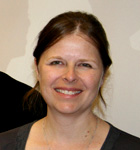
Lisa Andermann, MPhil, MD, FRCPC is a staff psychiatrist at Mount Sinai Hospital and with the Psychological Trauma Clinic and the Mount Sinai Ethnocultural Assertive Community Treatment Team. She is an Assistant Professor of Psychiatry, Culture, Community and Health Studies, Department of Psychiatry, University of Toronto. Her interests are focused around the use of cultural formulation in psychiatric assessment and practice and cultural competence training for clinicians. She has been a visiting professor at the University of Addis Ababa, Ethiopia, has co-edited (with Dr. Steven Schachter) a book of patient narratives with epilepsy from around the world (The Brainstorms Village: Epilepsy in our World), and has written papers on cultural aspects of trauma, somatization among Ethiopian Jews in Israel, social aspects of epilepsy, and book chapters on women's mental health, mental health services for minorities, and cultural competence.
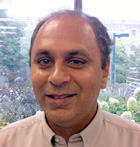
Neil Arya, MD, is a family physician in Kitchener Ontario and founding Director of the Global Health Office at Western University. Dr. Arya is former Vice-President of International Physicians for the Prevention of Nuclear War (winner of the 1985 Nobel Peace Prize), former President of Physicians for Global Survival, and has written and lectured around the world about peace through health. Dr. Arya continues as founder Director of the Kitchener/Waterloo Refugee Health Clinic in collaboration with the Kitchener Waterloo Reception Centre where he provides case-specific care to newcomers and those in need of specialized care and was lead physician developing the Psychiatric Outreach Project, providing mental health for those homeless or at risk in St. John’s Kitchen in Kitchener, tasks which led to him receiving the 2009 College of Family Physicians of Canada Geeta Gupta Award for Equity and Diversity. He remains assistant clinical professor in Family Medicine at McMaster University (part-time) and adjunct professor in Environment and Resource Studies at the University of Waterloo.
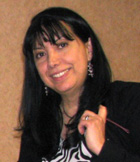
Teresa Dremetsikas graduated as a Medical Doctor from The University of Nuevo Leon in Mexico. She has been working for the Canadian Centre for Victims of Torture (CCVT) for the past twenty seven years in the areas of: assessment, counselling, crisis intervention, development and facilitation of Group Therapy sessions, coordination of the settlement and volunteer program. She is currently the Program manager at CCVT with overall responsibility for program design, implementation and evaluation. She is very active in public education delivering several training sessions on the issue of torture, assessment of survivors and development of supportive strategies for different institutions and for several organizations including CCVT staff, medical students, Health/Mental health professionals, social workers, educators, Refugee and Immigrant Service Agencies across Canada, Citizen and Immigration Canada officers, Immigration and Refugee Board members, Pre Removal Risk Assessment Officers and newly assigned Canadian Consular officers. She has made numerous presentations on the issue of torture locally, nationally and internationally.

Pat Durish, MSW, RSW, PhD, is a registered clinical social worker in private practice since 2007. Her area of clinical expertise is trauma. As part of her practice, Dr. Durish provides psychotherapy to individuals, couples and families, professional trainings to mental health workers, supervision services to therapists and assessments services for refugee claimants. She has received considerable postgraduate training in trauma and have served as an expert witness on trauma at the Human Rights Tribunal, Provincial and Supreme Courts. She earned her doctorate from the University of Toronto in 2004 and is a sessional instructor at OISE/UT, UofT and Ryerson. Before going into private practice, she worked as a clinical social worker at Barbara Schlifer Commemorative Clinic and Coordinated the Same Sex Partner Abuse Program at David Kelley HIV/AIDS Services. She has published several articles on trauma and workings with LGBTQ clients.
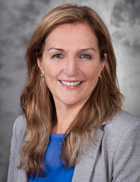
Josephine McMurray is an Assistant Professor in the Business Technology Management program, School of Business & Economics, and Health Studies at Wilfrid Laurier's Brantford Campus. Her general research interests include healthcare system information exchange and integration, and system performance measurement. Her work examines performance measurement related to vulnerable and at risk populations such as the frail elderly and those suffering from mental health issues, as well as refugees and those whose shelter is at risk. Current research projects include studies in values-based care models, stakeholder perceptions of technology and information exchange within organizations, technology-enabled measurement and management of patient experience, and technology-enhanced human resource models.
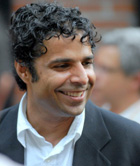
Meb Rashid, MD, is the medical director of the Crossroads Clinic, a medical clinic that serves newly arrived refugees in Toronto. He is a co-founder of the Canadian Doctors for Refugee Care, an organizations founded to advocate for refugees to access health insurance. He was on the steering committee of the CCIRH, a group that developed evidence based guidelines for the assessment of newly arrived immigrants and refugees. He also co-founded the Christie Refugee Health Clinic, a health clinic located in a refugee shelter. He is on the steering committee of the Canadian Refugee Health Conference. He has brought together clinicians across Canada with an interest in refugee health through a web based project called the Canadian Refugee Health Network and through a group called the Refugee Health Network of Southern Ontario. He recently was awarded an Award of Excellence from the College of Family Physicians of Ontario. He is on staff at Women’s College Hospital in Toronto and is affiliated with the Department of Family and Community Medicine at the University of Toronto.
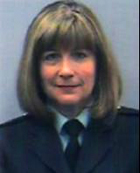
LCol Alexandra Heber, MD, FRCPC
LCol Alexandra Heber is a psychiatrist in the Canadian Forces and an assistant professor of psychiatry at the University of Ottawa. She has presented nationally and internationally on Post Traumatic Stress Disorder in the military population. In 2006, she was lead author on a NATO publication, “Combining Clinical Treatment and Peer Support: A Unique Approach to Overcoming Stigma and Delivering Care”. In 2009, she deployed to Afghanistan for a three month tour as the Officer Commanding the Canadian Forces Mental Health Services for Task Force Kandahar. Dr. Heber has provided training for Chaplains, Military Police, CF Interrogators, OPP, Ottawa Fire Services, and other “first responders”. For the past decade she conducted the Canadian Forces “Care for the Caregivers Program” for Canadian Forces chaplains, health care workers deployed to Haiti, and National Investigation Services (NIS) officers.
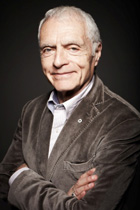
Dr. Morton Beiser
Dr. Morton Beiser is Professor of Distinction, Department of Psychology, Ryerson University; Scientist, Keenan Research Centre Li Ka Shing Knowledge Institute, St. Michael’s Hospital, Toronto; Professor Emeritus of Cultural Pluralism and Health, University of Toronto, and Founding Director and Senior Scientist of the Toronto Centre of Excellence for Research on Immigration and Settlement (CERIS). Dr. Beiser received an MD from the University of British Columbia in 1960, interned at the Montreal General Hospital, received specialty training in Psychiatry and Duke University and in Psychiatric Epidemiology at Cornell University. He was an Associate Professor of Behavioural Sciences at Harvard until returning to Canada in 1976. Author of one book, editor of two, and author of approximately 200 published articles and book chapters, Dr. Beiser has been Principal Investigator for studies totaling approximately 20 million dollars in funding that have focused on immigrant and refugee health and mental health, cultural influences on illness presentation, and cultural influences on service delivery and care. These studies have included the Refugee Resettlement Project, a ten-year study of the health and experiences of more than 1300 “Boat People,” from Southeast Asia; the Flower of Two Soils, an investigation of mental health and academic achievement among 2,000 Aboriginal children on two Canadian reserves and two US reservations; Immigrants and Tuberculosis, an investigation of factors accounting for the high risk for Tuberculosis among immigrants and refugees; Culture and the Treatment of First Episode Psychosis; Growing Up in Canada, a study of the children of the Southeast Asian refugees who took part in the Refugee Resettlement Project; Community in Distress, an investigation of the mental health of 1600 adult Tamils living in Toronto; the New Canadian Children and Youth Study involving 4,000 immigrant and refugee children in six cities across Canada and Leavers and Stayers, a comparison of the mental health of Ethiopian children and youth in Toronto and in Addis Ababa. From 1986 through 1988, Dr. Beiser served as chair of a federal government Task Force on the mental health of immigrants and refugees, whose final report, After the Door Has Been Opened (1988), contains a summary of the major issues confronting new settlers in Canada as well as a series of recommendations to governments about ways in which to alleviate the distress of immigrants and refugees, and to facilitate their integration. From 1990 to 1994, Dr. Beiser served as a member of the Canadian Multiculturalism Advisory Committee, a cabinet-appointed committee charged with overseeing the implementation of Canada’s multiculturalism law and policies. He chaired the Medical Advisory Committee of Citizenship and Immigration Canada from 1999 through 2006. Honours and awards have included National Health Scholar and Scientist Awards from Canada’s National Health Research and Development Program (NHRDP) (1981-1999); honorary membership by the Belgian Royal Society of Medicine (1975); the Josiah Macy Jr. Foundation (New York) Distinguished Scholar Award (1974-1975); the University of Toronto Beverley Distinguished Professor Award (1988); the Joey and Tobey Tanenbaum Award for Research in Schizophrenia (1994); the Rockefeller Foundation Resident Scholar Award (1995); the Canadian Psychiatric Association’s Alexander Leighton Award for Research in Psychiatric Epidemiology (2002); the Queen Elizabeth II Golden Jubilee medal awarded by the Senate of Canada in 2002 , and the Queen Elizabeth II Diamond Jubilee medal in 2013. In 2004, Dr. Beiser was honoured with the Order of Canada.